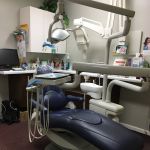How Often Should You Get a Dental Cleaning: Essential Tips for Oral Health
- 1. Understanding Dental Cleaning and Its Importance
- 2. Recommended Frequency for Dental Cleanings
- 3. Factors That Affect How Often You Should Get a Cleaning
- 4. Common Questions About Dental Cleanings
- 5. How to Maintain Oral Health Between Cleanings
- 6. When to Schedule Your Next Dental Cleaning
Dental cleanings are an essential part of maintaining good oral health. While brushing and flossing are crucial for daily dental hygiene, professional cleanings are necessary to remove plaque and tartar buildup that regular brushing can’t eliminate. Whether you're due for your next visit or just curious about the process, understanding how often you should get a dental cleaning is key to keeping your teeth and gums healthy.
When you visit a dentist for a cleaning, they use specialized tools to remove hardened plaque (tartar), which can cause cavities and gum disease if left unchecked. A professional cleaning can also help detect potential dental issues before they become serious. These regular visits help ensure that your oral hygiene routine is on track and provide an opportunity for early intervention if needed.
Recommended Frequency for Dental Cleanings
Generally, most dental professionals recommend getting a dental cleaning every six months. This schedule works for most people because it allows enough time to remove tartar buildup and maintain oral health. A typical routine cleaning includes scaling and polishing to keep your teeth looking clean and healthy.
However, some people might need more frequent cleanings, while others may be able to stretch out the time between cleanings. The six-month rule is a guideline, and your dentist can adjust the timing based on your specific needs.
Factors That Affect How Often You Should Get a Cleaning
While six months is the standard, there are several factors that can influence how often you should get a dental cleaning:
- Oral Health Conditions: If you have gum disease or other oral health issues, your dentist may recommend more frequent cleanings to manage these conditions. People with periodontal disease, for example, may need cleanings every three to four months.
- Age: As we age, our oral health can change. Older adults may require more frequent cleanings due to a decrease in saliva production, which can lead to dry mouth and an increased risk of cavities and gum disease.
- Smoking: Smokers are more likely to experience plaque buildup and gum issues, making it necessary to visit the dentist more often for cleanings.
- Medical Conditions: Certain conditions, like diabetes, can affect your oral health and may require more frequent dental cleanings to keep your teeth and gums healthy.
- Diet: A diet high in sugary or acidic foods can contribute to plaque buildup, meaning you might need cleanings more often to maintain good oral hygiene.
It's essential to communicate with your dentist about your specific circumstances to determine the optimal cleaning schedule for you.
Common Questions About Dental Cleanings
People often have questions when it comes to dental cleanings. Here are some of the most common ones:
- Does getting a cleaning hurt? Most people experience no pain during a routine dental cleaning. If you have sensitive gums or teeth, let your dentist know so they can take extra care.
- Is a dental cleaning covered by insurance? Most dental insurance plans cover at least one cleaning per year, and many will cover two cleanings annually. Check with your provider for specific details.
- Can I clean my teeth too much? While brushing and flossing daily is essential, over-brushing can damage your gums and enamel. Stick to brushing twice a day with a soft-bristled toothbrush and follow up with professional cleanings.
How to Maintain Oral Health Between Cleanings
While professional dental cleanings are essential, there are several ways to maintain good oral health between visits:
- Brush Twice a Day: Brushing with fluoride toothpaste helps remove plaque and bacteria from your teeth and gums.
- Floss Daily: Flossing removes plaque and food particles from between your teeth, where your toothbrush can’t reach.
- Use Mouthwash: Mouthwash can help kill bacteria and freshen your breath, providing additional protection against plaque buildup.
- Eat a Balanced Diet: Eating a diet rich in fruits, vegetables, and whole grains can help keep your teeth and gums healthy. Avoid sugary snacks that contribute to plaque buildup.
- Avoid Smoking: Smoking can lead to gum disease and tooth loss, so quitting is an important step in maintaining good oral health.
Following these practices will help reduce plaque buildup and keep your mouth in good shape until your next professional cleaning.
When to Schedule Your Next Dental Cleaning
If you're wondering when to schedule your next dental cleaning, the best approach is to consult with your dentist. They can help you determine the ideal timing based on your oral health and personal circumstances.
Don’t wait for an issue to arise—regular dental visits are key to preventing problems before they start. Visit Dentistry Toothtruth to learn more about how often you should get a dental cleaning and to schedule your next appointment. Prioritizing your oral health today will lead to a lifetime of healthy smiles!







 Kansas City Smiles & Co, Independence MO5.0 (722 review)
Kansas City Smiles & Co, Independence MO5.0 (722 review) Scott Earp DDS, PA4.0 (122 review)
Scott Earp DDS, PA4.0 (122 review) Kay Family Dentistry5.0 (186 review)
Kay Family Dentistry5.0 (186 review) Cherokee Family Dental4.0 (585 review)
Cherokee Family Dental4.0 (585 review) Sage Dental of Downtown Orlando4.0 (541 review)
Sage Dental of Downtown Orlando4.0 (541 review) Charles A. Messa Jr. DDS4.0 (14 review)
Charles A. Messa Jr. DDS4.0 (14 review) The Importance of Oral Health Education During Pregnancy for a Healthy Pregnancy
The Importance of Oral Health Education During Pregnancy for a Healthy Pregnancy Best Tips for Brushing Your Teeth Properly for Healthy Gums: Essential Techniques for Oral Health
Best Tips for Brushing Your Teeth Properly for Healthy Gums: Essential Techniques for Oral Health Why Skipping Dental Checkups Can Lead to Bigger Oral Health Problems
Why Skipping Dental Checkups Can Lead to Bigger Oral Health Problems Advantages of Porcelain Dental Restorations
Advantages of Porcelain Dental Restorations How Can Diabetes Cause Tooth and Gum Problems? Preventing and Managing Oral Health Issues
How Can Diabetes Cause Tooth and Gum Problems? Preventing and Managing Oral Health Issues Healthy Habits for Promoting Good Oral Health and Hygiene: Tips for a Healthy Smile
Healthy Habits for Promoting Good Oral Health and Hygiene: Tips for a Healthy Smile